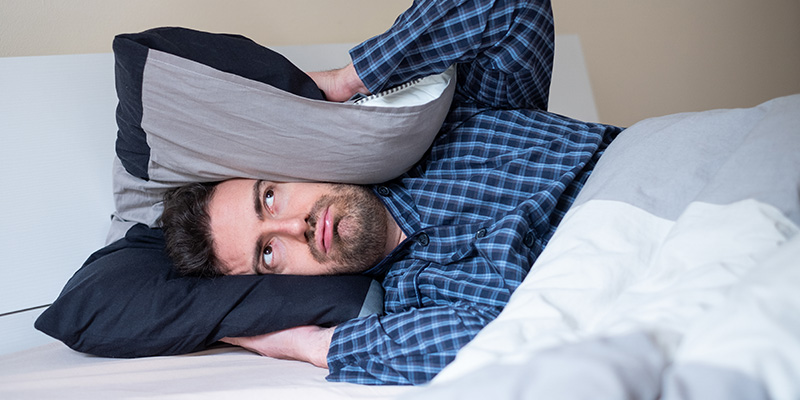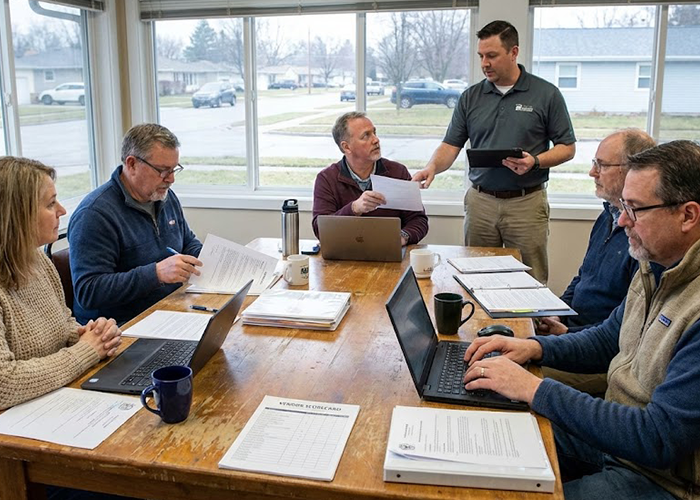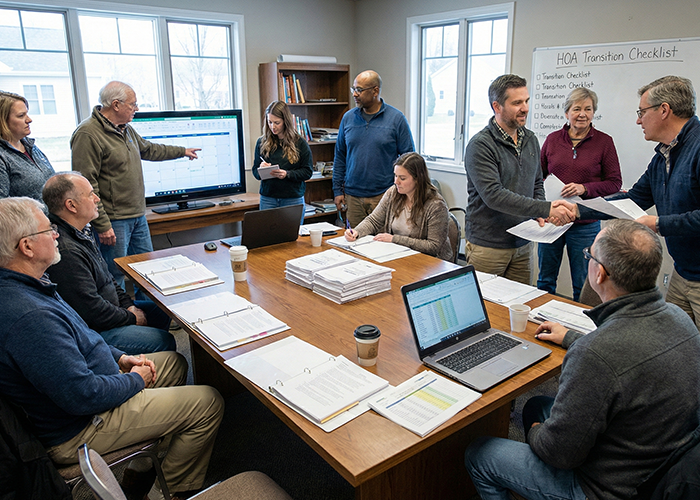HOA Noise Rules
Question:
Browse By Category
Sign up for Our Newsletter
Question:
Could you list a few examples of enforceable rules in line with fair housing, that can help solve noise nuisance issues relating to children in a limited space common area yard? I know rules cannot discriminate by naming a particular group, such as children or religions, etc., but can you make generalized noise nuisance rules or other rules that can help? The basic quiet hours rule is not helpful for this matter. Thank you so much!
– Anne
Answer:
Hi Anne,
It may be helpful to establish general noise level limits and specify that noise cannot exceed a reasonable decibel level during the day. You may also consider prohibiting the use of certain amplified devices like speakers or megaphones in common areas. The city might also have specific ordinances involving allowable noise levels.
Apart from these, the HOA can educate the community and encourage parents to let their children play in designated areas such as playgrounds or private yards. They can do so at a board meeting or through a newsletter. For further guidance, kindly consult a lawyer.
Disclaimer: We are not lawyers. The information provided on this website does not constitute legal advice.
Trending Now
Related Article
Sign up for Our Monthly Newsletter
Sign up below for monthly updates on all HOA Resource
HOA Noise Rules: Can Homeowners Complain About Neighbor’s Party Noise

Homeowners living in an HOA community must abide by the many regulations that exist within the association. For many communities, that includes HOA noise rules.
Browse By Category
Sign up for Our Newsletter
Homeowners living in an HOA community must abide by the many regulations that exist within the association. For many communities, that includes HOA noise rules.
Do You Have HOA Noise Rules in Your Community?
Nowadays, it is nearly impossible to find a homeowners association that does not have rules about nuisances. For those who are unaware, nuisances are activities that impede the homeowners’ right to quiet enjoyment. These can also cover any conditions considered offensive or dangerous as well as activities that breach federal, state, or local laws.
Noise is an example of a nuisance because it interferes with HOA quiet enjoyment. Other examples include odors such as cigarette smoke or garbage and health and safety issues such as outdoor fires or pests. It can also pertain to items that are visually unappealing, such as litter on patios or lawns.
Can HOA help with noisy neighbors? Homeowners and board members alike should refer to their governing documents for HOA noise rules. If no such rules exist, the board should consider creating them. In doing so, the board can set a precedent for maintaining order within the community.
What Homeowners Can Do About Loud Parties
Perhaps one of the most common noise complaints that homeowners have has to do with parties — holiday parties in particular. Associations generally take no issue with an HOA holiday party, but it becomes a problem when there is excessive noise.
Before the holidays roll around, HOA boards must remind all homeowners about the HOA noise restrictions. It is also a good idea to encourage residents to schedule their parties to start earlier. This way, they can end earlier, too.
In case a neighbor still holds a loud party, homeowners have the following options:
Take It Up With the Party Host

Residents who find the party next door too loud should first talk to the host. They should ask their neighbor to turn down the music or keep the noise down. Approaching the offending neighbor in a polite manner can usually take care of the issue.
Contact Local Authorities
If the noise persists, though, residents can contact the police. Most cities have noise ordinances that prevent excessive noise in between certain hours. For example, in New York City, Local Law 113 specifies quiet hours between 10 p.m. and 7 a.m.
You might wonder, though, “Can police enforce HOA rules?” It depends. The police can only enforce the rule if the person has also violated local laws. If no illegal activity takes place, then the police cannot do anything to enforce the HOA rule.
Submit an HOA Complaint
How do you stop noisy neighbors? File a complaint. Residents can bring the noise issue to the HOA board’s attention. The board will likely ask the resident to submit an HOA noise complaint letter containing specific details about the alleged offense. If the board decides that a violation has indeed occurred, the offender will suffer the consequences stipulated in the governing documents.
Take It to Court
In some cases, the noise problem might even escalate to a lawsuit. This is, of course, the least favored route since it requires both ample time and money. It is best to resolve the noise issue through other means first. Legal action should be the last resort.
Other Common Noise Complaints
Parties are not the only sources of noise in an HOA or COA community. Even with a homeowners association noise ordinance, here are some other possible noise issues residents may encounter:
1. Barking Dogs
For associations that allow pets, a common noise issue has to do with barking dogs. Dogs that bark loudly well into the wee hours of the night can frustrate neighbors. It is likely, though, that the association also has certain pet restrictions and provisions that owners must follow. This includes keeping the pet under control at all times.
What can HOA do about barking dogs? The HOA board can hold the owner liable for any nuisances the dog causes. The owner might suffer penalties such as fines or suspension of privileges. In some cases, the association can even force the owner to remove the pet if it becomes a nuisance, even if it is a service animal.
2. Noisy Kids
Most complaints about kids pertain to excessive noise in common areas. But, the HOA cannot enforce any rules that single out kids, in particular, and that treat them differently. This is considered discriminatory behavior and will put the association in trouble. It is imperative for the HOA board to treat children as it would any other adult to avoid Fair Housing issues.
3. Ceiling Noise from Neighbors Above
 How do you deal with noisy neighbors in a condo? Even COAs have condo noise rules that owners must follow.
How do you deal with noisy neighbors in a condo? Even COAs have condo noise rules that owners must follow.
Condo noise complaints, though, usually have to do with impact noise because condo units are arranged in stacks. Condo owners might complain about their upstairs neighbors creating too much noise just by walking on their hard flooring.
It is best to check the COA’s governing documents to see if there are any provisions concerning what type of flooring is allowed in units. Typically, though, COA boards have two options. The first is to require the installation of sound attenuating materials or the use of rugs to soften the sound, and the second is to force the owner (usually through a lawsuit) to replace the noncompliant flooring with a compliant one.
Dealing With Noise Complaints
Can HOA enforce noise complaints? In a word, yes. The HOA board can take suitable action if the complaint is grounded, provided the association’s governing documents permit it.
Standard procedures can vary from HOA to HOA, but they usually start with an evaluation. The board must first assess whether there is a need for them to interfere. The complaint might not have grounds and is simply just a personal issue between neighbors. It is usually best for neighbors to try to talk it out between themselves first before involving the HOA.
Then, the board must check how frequently the violation is happening. If the issue is persistent and the neighbors fail to resolve it themselves, the board should ask the complainant to submit a written letter about the noise. Following that, the board should then send a written request to the offending owner to remedy the situation and abide by the HOA noise rules.
Should the offending owner continue or refuse to stop, the board can deal with the nuisance in the same way it deals with other violations. This includes levying applicable fines, suspending certain owner privileges, or even taking legal action. Keep in mind, though, that it is always best for the board to check with an HOA attorney before proceeding.
The Bottom Line
Holiday parties are a great way to celebrate with friends and family, but they can be a nuisance. That is why it is essential for associations to have HOA noise rules in place. Homeowners who feel that their neighbors are creating too much noise can either talk to the offending owner first or take it up with the HOA. In some cases, they might even call the police or file legal action.
Managing a homeowners association means having to juggle a variety of tasks, including enforcing noise rules. Get some help from an HOA management company today. Find the best one in your area using HOAManagement.com’s online directory.
RELATED ARTICLES:
- Have Bad Neighbors? What To Do Legally
- 6 Tips On How Can HOA Enforce Rules And Regulations
- HOA Dog Rules And Policies Every Dog Owner Should Know About
Trending Now
Related Article
Sign up for Our Monthly Newsletter
Sign up below for monthly updates on all HOA Resource















